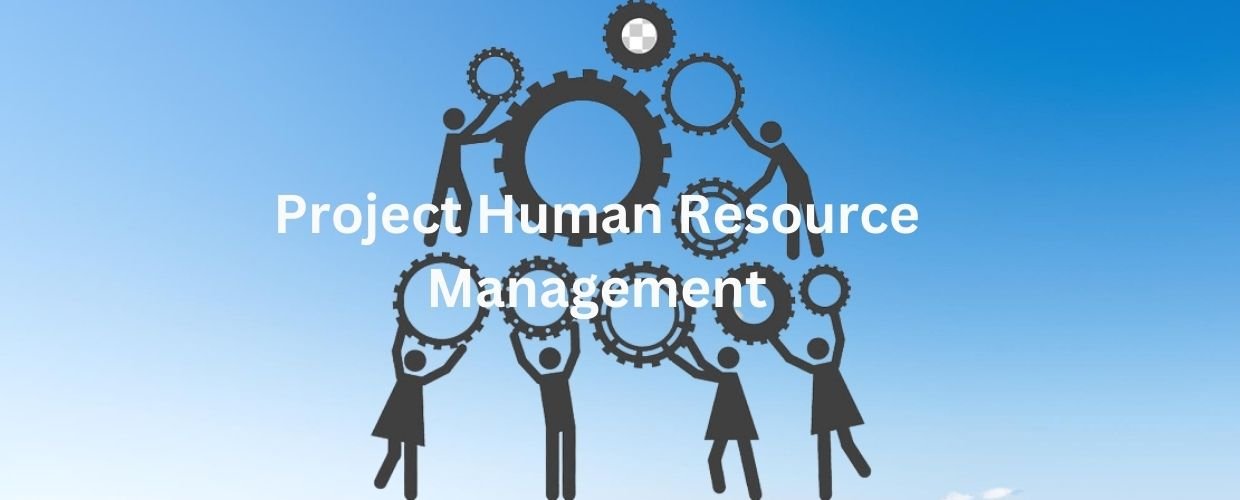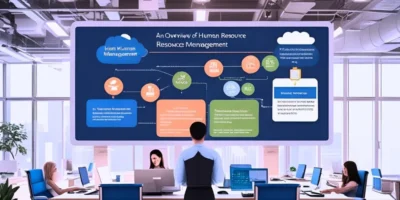In project management, delivering successful outcomes goes beyond managing timelines and resources. The human element is pivotal in project success, making Project Human Resource Management a critical discipline within project management practices. This specialized area focuses on acquiring, developing, and effectively utilizing the project team’s talents to achieve project objectives. This article delves into the significance of Project Human Resource Management, its key processes, and its impact on project outcomes and team dynamics.
The Significance of Project Human Resource Management
Project Human Resource Management recognizes that people are the most valuable asset in any project. It emphasizes the importance of nurturing a cohesive and skilled project team that can collaborate, communicate, and contribute effectively to project success. The following points highlight the significance of Project Human Resource Management.
Talent Acquisition and Team Building
Identifying and assembling the right mix of skills, expertise, and personalities is essential for creating a high-performing project team. Project Human Resource Management ensures that the right individuals are recruited, leading to a cohesive and synergistic team dynamic. By understanding the project’s requirements and identifying key competencies, HR managers can attract and select team members with the necessary skills and cultural fit.
Motivation and Engagement
Engaged and motivated team members are more likely to invest fully in the project. Project Human Resource Management techniques promote team motivation through recognition, empowerment, and opportunities for professional growth. Providing a sense of purpose, challenging work assignments, and a supportive work environment all contribute to higher levels of employee engagement.
Conflict Resolution
Project teams often encounter conflicts and challenges. Effective Project Human Resource Management provides mechanisms to address and resolve disagreements constructively, maintaining team harmony and productivity. Encouraging open communication and creating a culture that values diverse perspectives can help navigate and mitigate conflicts.
Skill Development and Training
Ongoing skill development is crucial for keeping the project team equipped with the latest knowledge and expertise. Project Human Resource Management identifies training needs and facilitates skill-building initiatives to enhance team capabilities. Continuous learning opportunities improve the team’s performance and boost individual career growth and job satisfaction.
Effective Communication
Transparent and open communication channels are essential for project success. Project Human Resource Management fosters effective communication among team members, stakeholders, and project leaders. Transparent and regular communication ensures everyone is aligned with project objectives, milestones, and expectations.
Critical Processes of Project Human Resource Management
One of the most essential factors in project success is appropriately managing human resources. Critical processes such as staffing, team building, and performance management are crucial to ensuring that the right people are in the right roles and working together effectively towards a common goal.
- Human Resource Planning: This process involves determining the project team’s required skills, roles, and staffing needs. HR collaborates with project managers and stakeholders to understand requirements and define the project team’s structure. Through workforce analysis and forecasting, HR managers ensure that the correct number and types of resources are available at each project phase.
- Acquisition and Recruitment: In this process, the project team is assembled through recruitment, selection, and onboarding activities. HR managers work closely with project managers to acquire talent with the right skills and experience. Effective recruitment strategies may involve internal sourcing, external hiring, or partnering with external agencies and consultants.
- Team Development: Once the team is in place, the focus shifts to nurturing team cohesion and building collaboration. Team development activities may include team-building exercises, training sessions, and workshops to enhance team effectiveness. Developing a sense of camaraderie and shared purpose strengthens teamwork and promotes a positive team culture.
- Performance Management: Project Human Resource Management continuously monitors team performance and provides feedback to individual team members. Performance evaluations help identify areas for improvement and recognize exceptional contributions. Performance feedback should be specific, actionable, and tied to project objectives.
- Conflict Management: Conflicts are inevitable in any project, but they must be resolved promptly and constructively to prevent adverse impacts on project progress. Project Human Resource Management implements conflict resolution techniques to foster a harmonious team environment. Mediation, active listening, and fostering a culture of respect and trust are essential conflict management approaches.
- Leadership and Motivation: Influential project leaders are crucial in motivating and guiding the project team. Project Human Resource Management ensures that project leaders possess the necessary leadership skills to inspire and guide their teams. Leadership training and mentorship programs can further enhance leadership capabilities.
Impact of Project Human Resource Management on Project Success
The effect of practical project human resource management cannot be overstated regarding project success. Ensuring that the right people are in the right roles and working together effectively can mean the difference between a project delivered on time and budget and one that needs to catch up and meet its objectives.
- Enhanced Project Efficiency: A well-managed project team works cohesively and efficiently, leading to improved project timelines and meeting deadlines. When team members have clear roles, responsibilities, and goals, they can work collaboratively to execute project tasks precisely.
- Reduced Employee Turnover: An engaged and supported project team is more likely to stay committed to the project, reducing employee turnover and the associated disruptions. Retaining experienced team members throughout the project’s life cycle ensures continuity and maintains knowledge within the team.
- Higher Quality Deliverables: A skilled and motivated team is likelier to produce high-quality deliverables that meet or exceed stakeholders’ expectations. Combining talent, motivation, and effective communication creates superior project outcomes.
- Improved Communication: Effective communication within the project team fosters a collaborative and transparent work environment, reducing misunderstandings and promoting alignment. When team members can openly share ideas, concerns, and progress, they can address issues promptly and make informed decisions.
- Better Risk Management: A capable project team can proactively identify potential risks and opportunities, enhancing risk management efforts. When team members are empowered to voice concerns and propose solutions, the project benefits from a proactive risk response strategy.
Conclusion
Project Human Resource Management is the heart of successful project execution, recognizing that people are the foundation of project success. By strategically acquiring, developing, and nurturing the project team, this discipline ensures that the project progresses smoothly, efficiently, and with high-quality results. Effective communication, conflict resolution, and motivation foster a harmonious team environment that elevates project outcomes. As organizations continue to invest in developing their human resources, Project Human Resource Management will remain a critical enabler of project success in today’s dynamic and fast-paced business environment.
As projects become increasingly complex and teams more diverse, the value of Project Human Resource Management becomes even more evident. By recognizing the unique strengths of each team member and providing the necessary support, organizations can harness the full potential of their human capital and drive project success to new heights. As a fundamental aspect of project management, Project Human Resource Management empowers organizations to achieve their project objectives and build a collaborative and motivated workforce that fuels future success.













